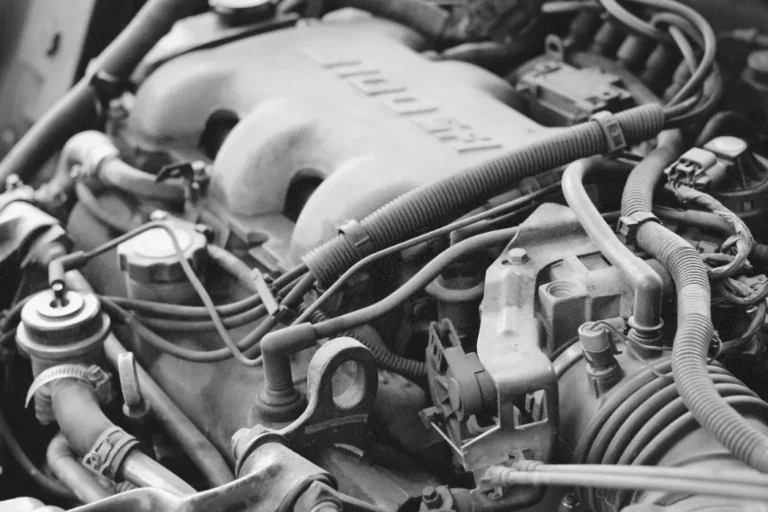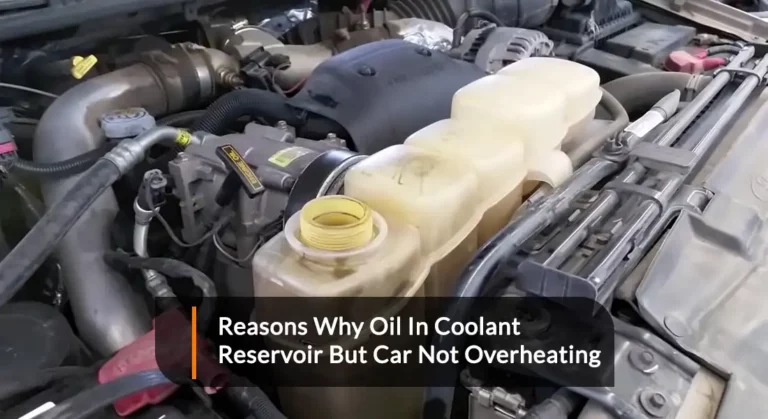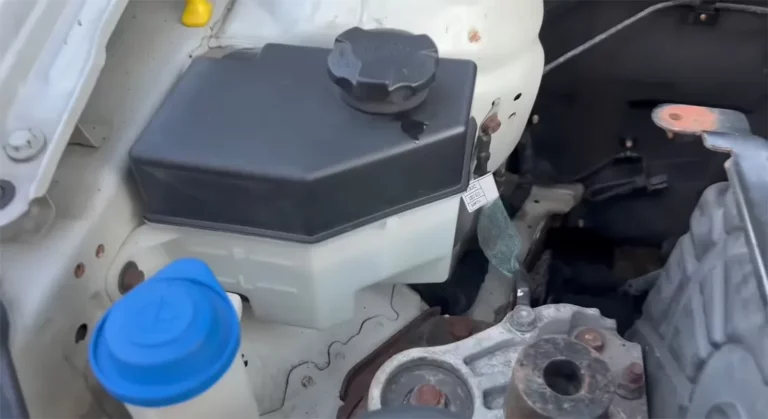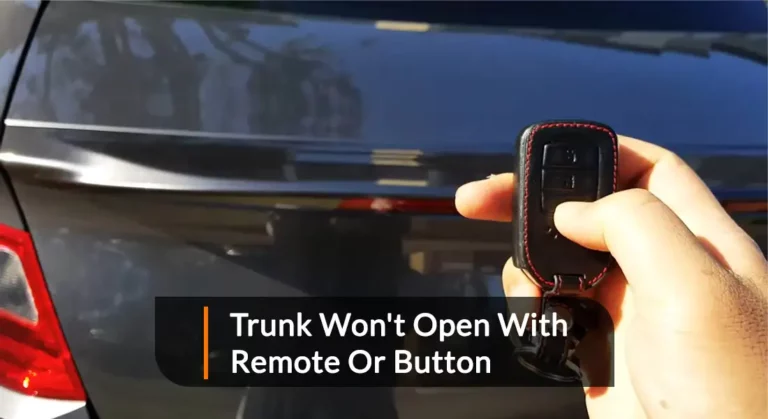Leak In Brake Booster – Why + How to Fix?
A leak in the car’s brake booster might be referred to as a vacuum or fluid leak. But how can you tell if there’s a vacuum or fluid leak in the brake booster?
The simplest way to find out is to look for symptoms. Typical Fluid leak in brake booster symptoms include:
- increased braking distance,
- strange noises from your brakes, or
- a noticeable drop in brake fluid levels,
While the common Vacuum leak in brake booster symptoms includes:
- a rough or surging idle and
- Check Engine Warning Light flashes.
Read the article to learn about all potential signs of a bad brake booster, their causes, as well as how to detect, test, and fix your brake booster leak_
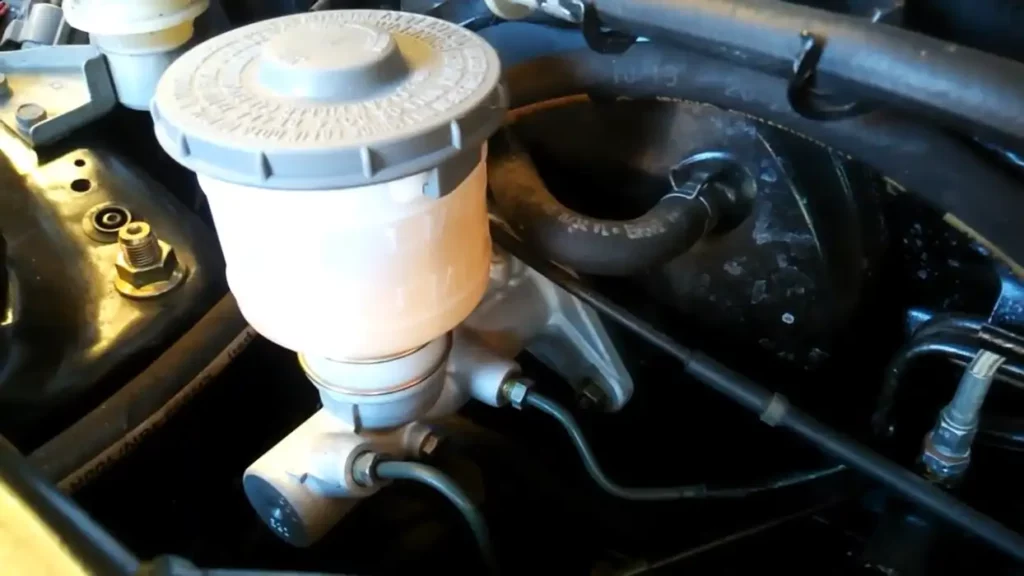
Is Leak and Vacuum Leak in Car’s Brake Booster the Same Thing?
No. The “leak in brake booster” and “vacuum leak in brake booster” are two different issues.
A brake booster in a car is responsible for strengthening the force of the braking system and operates via a vacuum.
If your vehicle is having a fluid leak in the brake booster problem, it means the leak can occur in several places, including:
- Brake hose & lines,
- wheel cylinders, or caliper pistons,
- Bleeder screws, master cylinder, or
- in the ABS module.
On the contrary, A vacuum leak in your car’s brake booster indicates that the leak occurred in the vacuum line or the brake booster check valve.
Keep in mind that, while the symptoms of these two types of leaks may appear the same, the reasons and solutions may differ.
6 “Leak in Brake” Booster Symptoms to Watch Out for:
Here are the six most common Leaky brake booster symptoms to warn you:
- Low or Spongy Brake Pedal & Decreased Braking Power: A leak in the brake booster can cause the brake pedal to feel spongy or low as it reduces the amount of pressure that reaches the brakes to assist in delivering smooth braking performance.
- Hard Brake Pedals Difficult to Press: A leak in the brake booster can cause air to enter the braking system, making the brake pedal seem harder and difficult to depress. It can also cause due to a faulty brake booster check valve.
- Increased Stopping Distance & Take Too Long to Stop: You may notice that the system is taking too long to stop the car or increased stopping distance due to a lack of assistance reaching your vehicle’s braking power.
- ABS or Brake Warning Light May Come On: In some cases, the ABS indicator or the brake warning light on your vehicle dash illuminates when there’s something wrong with the brake booster.
- Fluid Leaking: If you notice leaking in the brake booster, it’s a clear sign of a bad brake booster on your car because brake fluid may leak from the master cylinder or brake lines.
- Damaged Brake Booster Component: Damaged brake parts, such as a cracked valve or broken diaphragm can also cause a leak.
Read Also: Brake Shudder After New Rotors And Pads [ Cause + Fix]
5 “Vacuum Leak in Brake” Booster Symptoms to Look For:
Here are the five most typical signs of a bad brake booster with a vacuum leak problem:
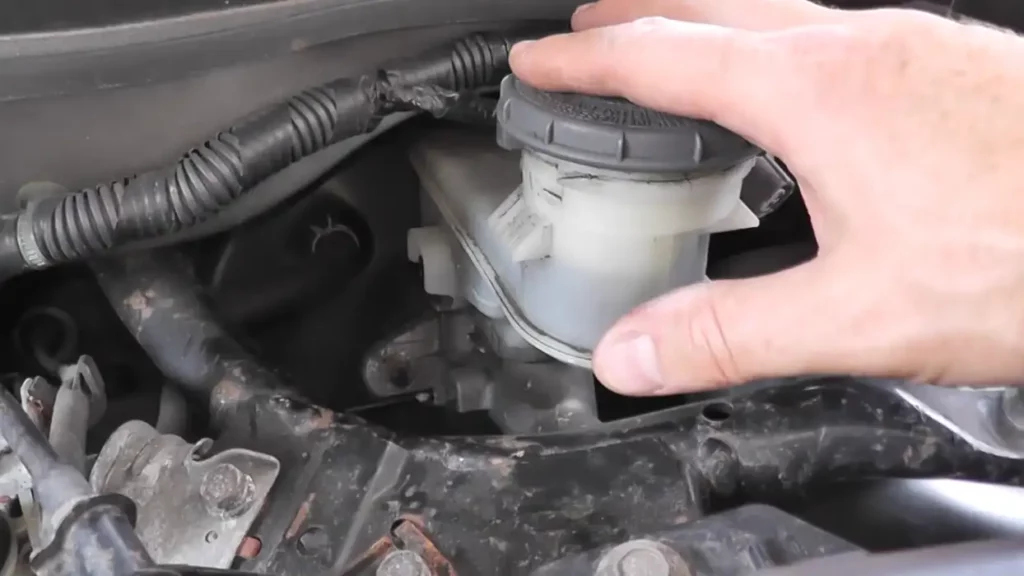
- Too Stiff Brake Pedal: A bad brake booster caused by a vacuum leak can make the brake pedal too stiff.
- Poor Brake Performance: If the brakes don’t seem to be working as well as they should, it could be a sign of a vacuum leak. Because your car’s brake booster employs vacuum pressure to assist the brake pedal in smooth braking.
- Hissing or Whistling Noise: A distant hissing or whistling noise coming from the engine bay often indicates a vacuum leak caused by a damaged or disconnected vacuum hose.
- Engine Performance Declines: A vacuum leak can cause the engine to run badly, resulting in rough idle, slowness, high idle speed, misfiring, or stalling. Because of the vacuum leak, the engine isn’t getting enough air or fuel.
- Flashing of The Check Engine Light (CEL): A vacuum leak can also potentially trigger the CEL to light up on your car’s dash when the engine’s sensors may detect a problem with the vacuum pressure.
Can You Fix Leak in Brake Booster Problem on Your Car?
Of course, you can. Whether it’s a fluid leak or a vacuum leak in your car’s brake booster, you need to perform a thorough diagnosis to confirm and fix the actual problem.
Therefore, just follow the below instructions step by step:
Step-1:
Park your vehicle on a flat or leveled surface securely and jack it up as needed to put it on stands. Examine if the fluid is leaking near any wheel and remove the wheel.
Inspect the brake hoses and lines to verify whether you have a leak in brake booster hose or it is the brake lines that initiated the leak in the system. Inspect both thoroughly to decide which one needs to be replaced.
Step-2:
Next, take a look at the caliper pistons. The piston of a brake caliper has a flexible rubber seal that allows it to move easily under pressure, and this seal, like all brake parts, will degrade over time.
Or, the caliper could be simply seized or locked up.
Read Also: Orange Rust on Brake Rotors? – [Try This Easy Fix!]
There are 3 ways to Fix the Brake Caliper Issue:
- Diagnose the brake caliper thoroughly
- Replace the worn seal and clean the caliper to see if it fixes the issue.
- Rebuild or replace the brake caliper.
Step-3:
If bad caliper pistons didn’t cause the leak, it could have been caused by a failed wheel cylinder. There are clear signs to verify when you have got a bad wheel cylinder causing the leaks.
But if you’re not aware of them or still not sure, you should run a proper inspection as shown in this video:
If the cylinder is bad, you should replace it. But it is not always necessary and you can simply repair to reuse the wheel cylinder by following this tutorial:
Step-4:
Also, remember to check whether the bleeder screw mounted between the brake caliper and wheel cylinder is not too loose or too tight and properly screwed. If the bleeder looks loose or worn, tighten or replace it as required.
Step-5:
Overfilled master cylinders can cause fluid leaks, and cleaning the leaked fluid will be enough if that’s the case. If there is evidence of leakage at the fittings, tightening or replacing the fittings will resolve that.
The leak could start in one or more parts or locations of the master cylinder, such as the braking fluid reservoir, brake line fittings, or seals. Inspect such parts and replace them as needed.
If you see leaking around the cylinder piston rod, you must remove and rebuild the cylinder.
However, if internally decaying parts or damaged seals cause the leakage, there will be no outside signs or symptoms before major brake failure.
So, get your car’s master cylinder professionally checked and serviced regularly during the car’s scheduled maintenance to avoid that.
Step-6:
If the leaking problem remains, it means you have a vacuum leak issue. So, inspect the vacuum line, and if it’s broken, service it.
Then, check the vacuum hose and service it if necessary. Check if the check valve or the brake booster itself is bad and service them as required.
Frequently Asked Questions [FAQs]
Can I drive with a leak in the brake booster?
No, you should not because it is extremely dangerous not only for you but also for others on the road.
How much does a leak in brake booster repair cost?
A brake booster replacement could cost on average stay between $325 and $1250. Labor costs normally range from $100 to $200, and car parts can range from $100 to $900 or more.
Can a leaking brake booster cause a rough idle?
Yes, in some circumstances a leaking (vacuum leak) brake booster can cause that.

